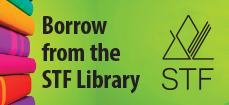R054882
This textbook supports selected outcomes in Biology 30 and Health Science 20. Canadian examples are provided with a focus on hands-on inquiry and real-world applications. Colourful, visual, mini-investigations and concept reviews support the content throughout the resource.
Please see the related resources below.
Record posted/updated:
November 25, 2018
R100035
This resource contains 15 lesson ideas, some of which support student inquiry in topics in the Environmental Science 20 and Biology 30 curricula. Real-life case studies and some Canadian examples, such as the Victoria Experimental Network Under the Sea and the Nova Scotia Vernal Pool Mapping and Monitoring Project, are incorporated into the resources for the lessons.
Record posted/updated:
November 25, 2018
R046205
This film explores the ghost world in your genes - the hidden layer of inheritance that lies in every cell of our body. From IVF treatment, to post traumatic stress disorder, to the food our grandparents ate, the controversial science of epigenetics could change the way we think about inheritance forever. At the heart of epigenetics is the idea that our genes have a 'memory' and that the lives of your grandparents can directly affect you, despite never experiencing these things yourself. And that the things you do in your lifetime will in turn affect your grandchildren. Epigenetics represents a major shift in thinking from the conventional view that DNA carries all our heritable information, and that nothing an individual does in their lifetime will be biologically passed to their children. It is a heresy to most scientists, calling into question the way we have viewed the DNA sequence. Scientists reveal how epigenetic 'switches' control the genes themselves and that these switches can be turned on and off by environmental factors like nutrition and stress.
Record posted/updated:
July 1, 2020
R101038
Gizmos is a website of inquiry-based, online simulations for topics in Math and Science from Grades 3-12. A selection of simulations is available as part of the free trial, but access to the full library of simulations requires a paid subscription. A request must be submitted by email to receive a quote for a membership. Examples of the topics in the library include: ecosystems, chemical bonding and genetics.
Record posted/updated:
January 6, 2026
R102102
This professional resource is designed to support teachers in presenting biology concepts to their students. The book is organized into two parts. The first part provides an instructional framework that focuses on learning needs and teaching strategies. The second part provides models use of the framework for teaching four topics: growth and development of organisms, ecosystems, heredity and biological evolution.
Record posted/updated:
March 4, 2022
R049398
This video examines agriculture and genetic modification of seeds. Today's society has an abundance and variety of food items; however, is the system sustainable? In the past, seeds adapted over thousands of years to withstand diseases and changes in the environment. Multinational corporations recognize the value of seeds and prevent farmers from collecting and saving seeds to plant in upcoming years. Today, a small number of multinational corporations control the future of the food supply by controlling the seeds.
Record posted/updated:
January 6, 2026
R025972
This book explores gene therapy and related topics such as eugenics, consent issues, transhumanism, stem cells, viral shedding and unintentional viral contamination of non-target individuals. It includes an index, glossary and a list of sources for further learning.
Record posted/updated:
March 7, 2022
R072029
Scientists from around the world are racing to answer the question: Can we turn back the human clock? Gerontologist Michael Rose leads us through cutting-edge science in life extension: biotechnology, genetic research, therapeutic cloning and stem-cell research. Living Forever looks at what could happen if humans are able to live for another 100 or 500 years. Should we create a race of immortals? At what evolutionary cost? And what are the ethical issues involved?
Record posted/updated:
January 6, 2026
R031445
This DVD is a multimedia presentation showing how geologic forces have shaped North America and influenced the lives of different beings, including human societies. Three one-hour episodes are present on this disk: Origins, features the geological origins of North America; Life, discusses the interconnections between geology and living beings; and Human, shows how our societies have depended upon and responded to geological processes. In addition to the DVD, a website provides educational opportunities and ideas for the classroom.
Record posted/updated:
March 2, 2022
R037056
The actions of chromosomes during mitosis, meiosis and fertilization, as discovered in 19th century Germany, are explained in this video. These microscopic findings, together with the rediscovery of Mendel's long-lost research in 1900, gave birth to the Chromosomal Theory of Heredity. Sex chromosomes, X-linked recessive traits, linkages, crossovers and gene mapping are also discussed.
Record posted/updated:
November 25, 2018
R033276
This video provides examples of how humans have influenced the evolution of elephants, dogs, wolves, coyotes, and horses through hunting, domestication and urbanization. Examples of both natural and artificial selection are included. The concise video includes six-minute segments on specific organisms.
Record posted/updated:
March 4, 2022
R037054
This episode tells the story of genetics from ancient times to its true scientific beginnings in the 19th century. Humorous animation and other creative visuals illustrate the unsuccessful efforts of Aristotle, Darwin and others to solve the age-old puzzle of heredity. The focus then shifts to Gregor Mendel, the obscure 19th C. Austrian monk whose plant experiments laid the foundation for the science of genetics. His laws of Random Segregation and Independent Assortment are clearly and entertainingly explained, then reinforced by a Moxy Fruvous song. For more information and resources specific to this video, visit http://www.crackingthecode.ca/ctc1.html
Record posted/updated:
November 25, 2018
R037055
The human genome sequence was the finish line for another famous race in genetics, which led to a historic White House press conference. The leaders of this epic effort, including Francis Collins, Craig Venter, Eric Lander, John Sulston and Sydney Brenner, explain its origins, how it was done and what it reveals so far about our book of life.
The major surprise was how few genes there actually are in the human genome. We compensate in part by using RNA splicing to create different proteins from the same gene. Having the complete sequence at hand has greatly simplified the search for new disease genes and created the new fields of genomics and bioinformatics. To illustrate all this, we focus on Chromosome 7 and one of its most fascinating stories, that of Williams Syndrome, which produces an unusual mix of mental deficits, strengths, musical talent and affability. We meet A.J., a Williams Syndrome kid in San Diego who plays a mean set of drums.
Record posted/updated:
July 8, 2024
R071687
This safety resource brings information together that is needed by administrators, planners, teachers and support staff to help them make sound decisions regarding science safety. It supports planning and action by providing information on safety legislation, standards and concerns, as well as example procedures for eliminating or minimizing hazards. A copy of this handbook was sent to all schools with Grades 8-12. Because workplace standards may change over time, users of this resource should check for updated information wherever there are references to national or provincial legislation.
Record posted/updated:
January 2, 2019
R102109
This resource provides a good introduction to high school science, showing how chemistry, physics and biology are interrelated. It provides useful study strategies, an explanation of the vocabulary of science (commonly used root words, prefixes and suffixes) and tips for how to think critically and use mathematics as a science tool.
Record posted/updated:
November 10, 2018
R054795
The 1970s and 80s saw the invention of ingenious new ways to manipulate DNA, which remain the cornerstone of today's genetic revolution, including the Human Genome Project. We begin with a scientist/magician demonstrating six simple tricks with DNA. Using these as building blocks, the more complex technologies of DNA fingerprinting, DNA sequencing, and PCR (the polymerase chain reaction) are explained in an easy to understand way. The excitement of this fertile period is brought to life through the personal recollections of its leading innovators.
These key technologies gave scientists the first maps of the human genome, which in turn allowed them to hunt down human genes, with no prior knowledge of their location. This culminated in the 1989 discovery of the gene for cystic fibrosis, which was the finish line for an exciting international race. We are guided by Sir Alec Jeffries, the inventor of DNA fingerprinting; Hamilton Smith, who won a Nobel Prize for discovering the key tool of restriction enzymes; Michael Smith, who won a Nobel Prize for a DNA-based technique to create pinpoint mutations, and Lap-Chee Tsui, who led the Toronto team that won the race to the cystic fibrosis gene.
Record posted/updated:
July 8, 2024
R037394
Beginning with its discovery in a gothic German castle, we follow the scientific surprises as DNA beat out protein, the more logical candidate, as the stuff of the gene. Joshua Lederberg pays tribute to the work of Oswald Avery, the Canadian-born scientist who first proved it was DNA and the impact this had on his own landmark discovery that bacteria have sex, i.e., exchange genetic material.
Two sets of clues led to the discovery of the double helix structure of DNA, one from physics and the other from chemistry. James Watson recounts how he and Francis Crick put these clues together for the first time. The poignant story of Rosalind Franklin, whose X-ray data they relied upon, is recounted by her closest colleague, Sir Aaron Klug. Four Nobel laureates are featured in the film, including Sydney Brenner, another founder of molecular genetics.
Record posted/updated:
July 8, 2024
R037057
We follow the steps by which the discovery of the double helix in 1953 quickly led to our understanding of how a gene produces a protein, using messenger RNA as the intermediary. The basics of transcription and translation are clearly explained using creative animation. Then in the 1960s came the actual cracking of the code that translates DNA codons into amino acids. We are guided by Sydney Brenner (the discoverer of the codon, messenger RNA and much else), Canada's own Nobel laureate, Michael Smith (in one of his last interviews) and Leroy Hood, the father of today's high-tech DNA lab.
This episode also covers the next leap forward - recombinant DNA or genetic engineering - and the initial alarm that this caused in the 1970s among the scientists themselves, which led to public protests against this new technology. Once these initial fears were dispelled, both the biotech industry and the new revolution in DNA technology began in earnest. Also features Nobel laureates Joshua Lederberg and James Watson.
Record posted/updated:
July 8, 2024
R101140
In spite of the scientific evidence in its favor and over a decade of uneventful experience in N. America, GM crops and foods continue to engender fear, particularly in Europe. This companion piece to The Seeds of a New Era provides a thorough discussion of the non-scientific factors behind these fears. These include political and economic concerns about a loss of competition and choice, the psychology of risk perception and philosophical ideas about 'natural' vs. 'unnatural'. This episode also looks at future uses of GM crop technology, such as molecular farming for drugs and other valuable proteins.
Record posted/updated:
November 10, 2018
R035035
This episode examines the science of genetically modified crops and foods. It begins by explaining, through creative animation, the actual process by which a foreign gene is introduced into a plant. It then examines the actual benefits and risks of the two types of genes currently added to GM crops - the BT gene to fight insects and the gene that protects the plant against new, more environmentally friendly insecticides. Using documentary footage, along with animation, this film defuses some of the mythology and emotion that surrounds this subject. It features Canada's leading experts in this area, as well as farmers who grow GM crops.
Record posted/updated:
November 25, 2018
R071618
All over the world frogs and hundreds of other amphibians are rapidly disappearing. The situation is so serious that some scientists believe we are witnessing the biggest mass extinction since the dinosaurs.
Record posted/updated:
January 6, 2026
R054832
Reading the Book of Life was just the first step. The ultimate goal is to understand how it works. We are guided towards this new genetic horizon by Francis Collins and Craig Venter, the leaders of the two competing teams that first sequenced the human genome. The initial task is to separate out the genes from the other 98% or so of the genome that doesn't code for proteins, no easy feat since the genes themselves are split into even smaller bits (exons), which are also surrounded by DNA "noise". Three different gene finding techniques are explained. One method uses an RNA message to "tag" the gene that produced it. Another makes use of the codons that act as start and stop signals for the machinery of transcription. Still another method exploits the striking similarity between many of our genes and those of other creatures.
The next task is to work out the function of the proteins produced by these genes. Since many different proteins can be derived from the same gene, this a daunting long term project. Protein function is studied using experimental techniques such as "site-directed mutagenesis," which is explained by its inventor, Canadian Nobel laureate Michael Smith. The "holy grail" of genomics is to program computers to predict the function of a protein from the sequence of its gene - still a distant goal. Another challenge will be to work out which genes act together in networks to produce a "complex" trait. A key tool in uncovering these networks is the gene chip, which is explained in a visual, easy to understand way.
Small variations in our DNA play a crucial role in disease. The most important human diseases are caused by combinations of variant genes, interacting with environmental and lifestyle factors. These variant networks are far more difficult to track down than the single mutations that cause classic genetic diseases like cystic fibrosis. One way around this problem is to study isolated populations with a high incidence of a particular disease. One such group is the Cochin Jews of Israel, who suffer from a very high rate of asthma. The end result will be a new kind of medicine, based on genetic testing and prevention rather than after-the-fact diagnosis and treatment. This episode also features John Sulston, Eric Lander, Sydney Brenner and Joshua Lederberg.
Record posted/updated:
July 8, 2024







































































































